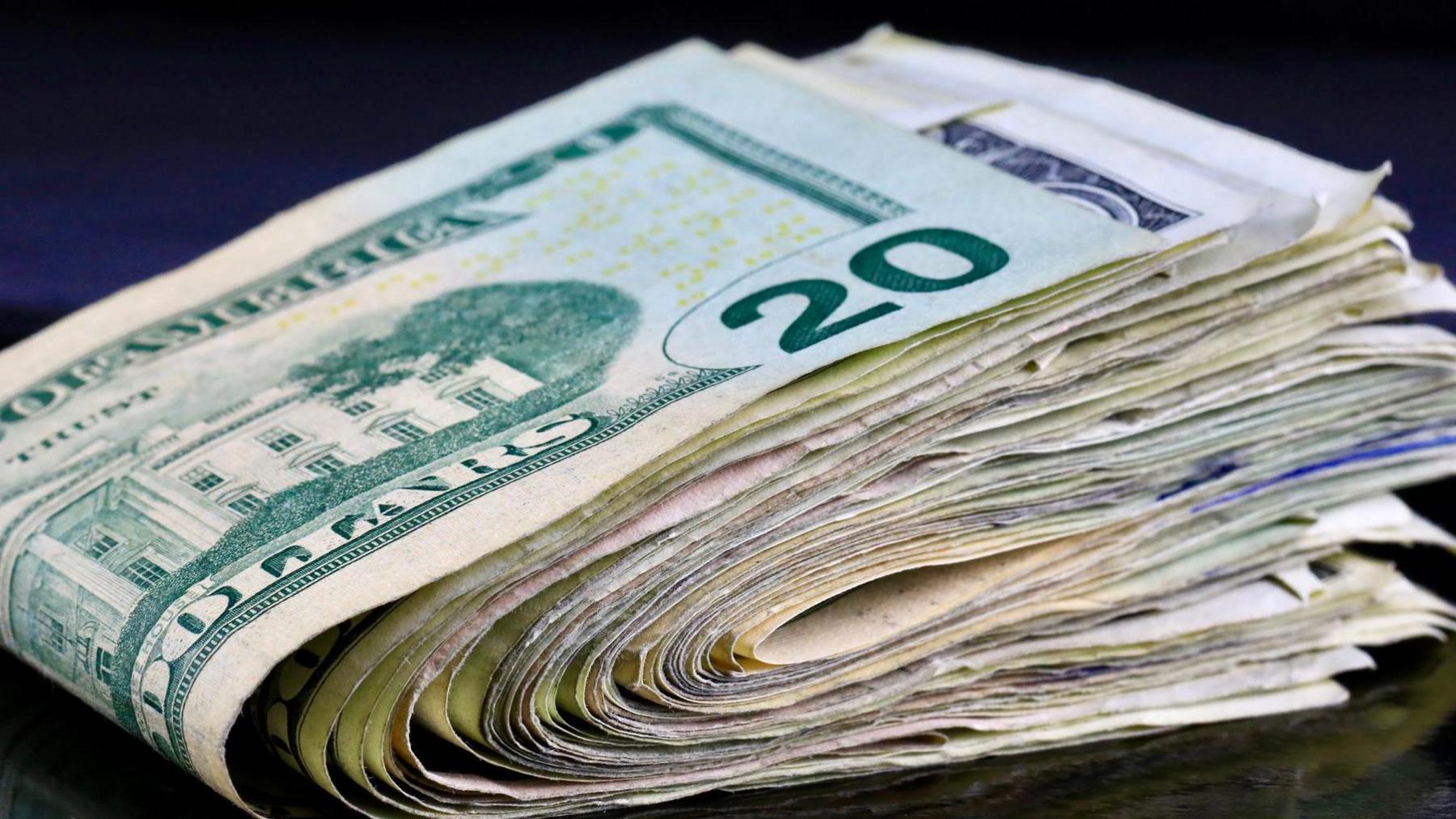Chinese 'underground bankers' accused of aiding Mexican cartel

- Published
The US has accused a Chinese "underground banking" network of helping Mexico's powerful Sinaloa drugs cartel with money laundering and other crimes.
The Department of Justice (DoJ) has charged 24 people with offences that also include distributing narcotics.
Law enforcement officers have seized about $5m (£4m) in proceeds, as well as guns and hundreds of pounds of cocaine, methamphetamine and ecstasy pills.
The DoJ touted the close co-operation with Mexican and Chinese law enforcement - a message that has been echoed on the Chinese side.
The US accuses the Sinaloa cartel of helping to fuel a deadly epidemic by flooding the country with fentanyl, a synthetic opioid up to 50 times stronger than heroin.
The DoJ highlighted a "conspiracy" during which more than $50m in drug proceeds moved between the Sinaloa gang members and Chinese underground "money exchanges".
It said these underground exchanges were being used by Sinaloa operatives to move their illegally acquired cash from the US to Mexico.
These Chinese exchanges offer a "ready market" for US currency, the DoJ said, explaining that some Chinese nationals want "informal alternatives" to conventional banking because the Beijing government caps the amount of money they can take out of China.
A statement from Beijing, quoted by the AFP news agency, appeared to confirm the rare close collaboration with the US, saying authorities there had arrested a money-laundering suspect.
That person had been involved in running a US car dealership before switching to "illegal foreign exchange trading".
Most of the 24 suspects named in the indictment will appear in a Los Angeles court "in the coming weeks", the DoJ added in its statement.
The US has long accused China itself of flooding the country with deadly drugs like fentanyl - an allegation that China denies.
In 2022 more than 70,000 Americans died from fentanyl overdoses of the drug, and Washington says Chinese-made opioids are fuelling the worst drug crisis in the country's history.